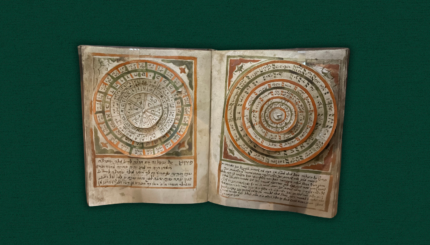Jewish tradition and scientific reasoning provide two different and sometimes contradictory sources of truth, and Jewish thinkers throughout the ages have struggled to address these contradictions.
Some argue that the two are incompatible; we must reject either the Jewish tradition or science. Others strive to integrate the two by reading scientific theory into the Jewish tradition or understanding science in light of the Jewish tradition. Still others argue that the Jewish tradition and science cannot contradict each other because they serve two different purposes. While science explains how the world works, the Jewish tradition explores why the world works. Science describes the world, and the Jewish tradition prescribes how we should act in it.
The Bible and the did not see science as an opposing system of truth; rather, science and the Jewish tradition were understood to be two different manifestations of the same divine truth. The Bible embraced knowledge of the natural world as a means of knowing God. The Psalmist described the amazing natural phenomena that God created, and concluded, “How great are Your works, God. You made them all with wisdom” (Psalm 104).
The Rabbis of the Talmud saw science not only as a means of knowing God, but also as a necessary tool in halakhic (legal) decision making. The Talmud, for example, used detailed astronomical calculations in determining the Jewish calendar, but also asserted that these calculations provided insight into the divine mind. “He who knows how to calculate the cycles and planetary courses but does not, of him the Scripture says: ‘But they regard not the work of the Lord, neither have they considered His actions'” (Babylonian Talmud, Shabbat 75a).

Help us keep Jewish knowledge accessible to millions of people around the world.
Your donation to My Jewish Learning fuels endless journeys of Jewish discovery. With your help, My Jewish Learning can continue to provide nonstop opportunities for learning, connection and growth.
The Talmud contains many references to scientific theories of its day, including many theories which have since been disproved. The Rabbis, for example, argued that one cannot break the Sabbath to help a woman in her eighth month give birth, because such a baby cannot be viable. Similarly, the Rabbis ruled that one can kill lice on the Sabbath because lice do not reproduce sexually.
Medieval Jewish thinkers, many of whom were themselves great scientists, struggled with the apparent contradictions between Judaism and science.
Maimonides saw both science and the Jewish tradition as expressions of divine wisdom and strove to integrate the two. He argued that if science disproved creation ex nihilo without a doubt, he would reinterpret biblical passages to conform to science (though he was not convinced by the Aristotelian proofs for the eternity of the world).
Medieval Jewish thinkers struggled to reconcile not only the Bible, but also the Talmud, with contemporary science. They understood that some Talmudic laws were based on incorrect science, and they disagreed about whether one should change these laws to accord with the science of their day, or maintain the laws out of respect for Talmudic authority.
The rise of modern science created new challenges for the Jewish tradition. Unlike some segments of Christianity, Jewish thinkers have rarely perceived the scientific method to be problematic in and of itself, but the results of this method often pose a problem. Evolution contradicts the biblical account of creation; psychology challenges the Jewish belief in free will; and historical scholarship and biblical criticism call into question the traditional understanding of the Bible.
For liberal denominations that have a more open approach to divine revelation and the development of Jewish law, these issues pose fewer problems. Orthodox Jews, however, who have a more conservative approach to the authority of the Bible and Talmud, have struggled to respond to scientific claims without undermining that authority. Traditional Jewish thinkers today face similar options to those faced throughout Jewish history: rejecting science, reconciling science and Jewish tradition, or arguing that the two have different purposes. Today, the dialogue between Judaism and science continues as both science and Judaism develop in new directions.



